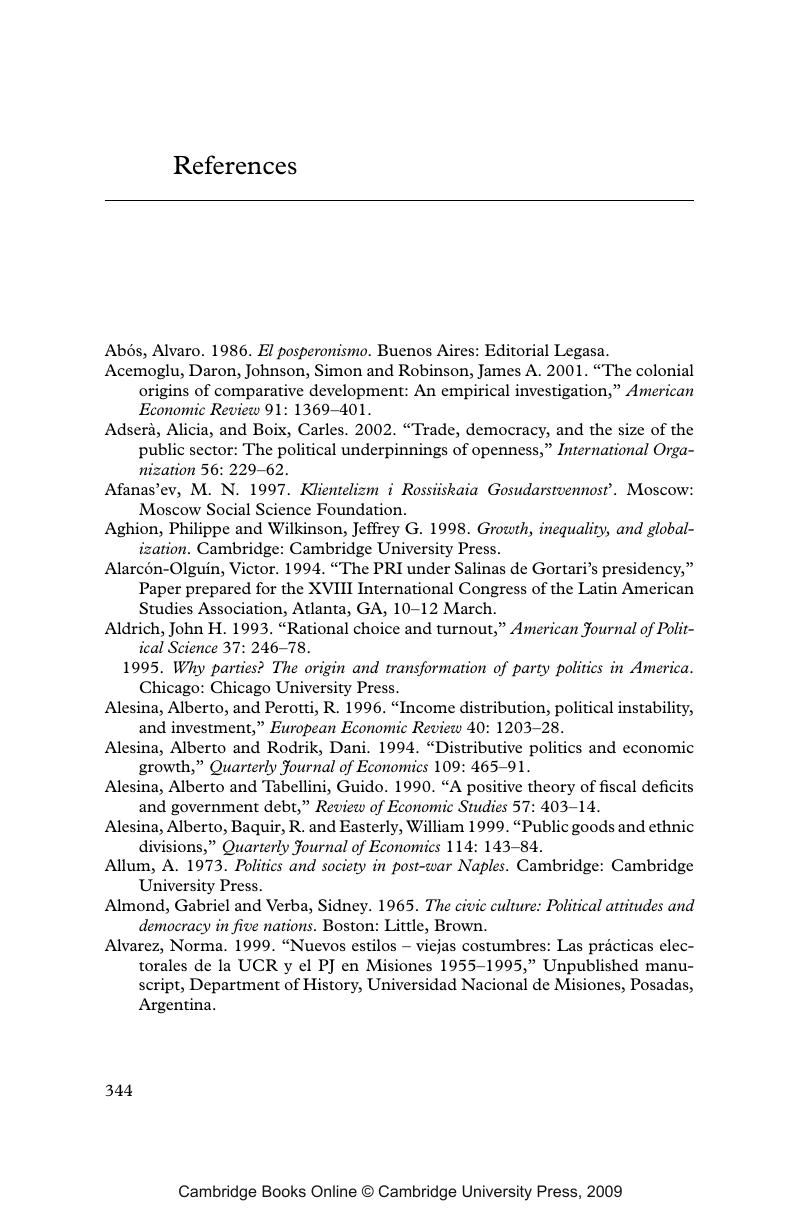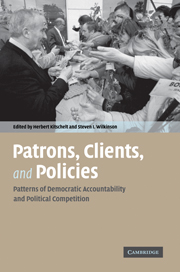Book contents
- Frontmatter
- Contents
- List of figures
- List of tables
- Acknowledgments
- List of contributors
- 1 Citizen–politician linkages: an introduction
- 2 Meet the new boss, same as the old boss? The evolution of political clientelism in Africa
- 3 Monopoly and monitoring: an approach to political clientelism
- 4 Counting heads: a theory of voter and elite behavior in patronage democracies
- 5 Explaining changing patterns of party–voter linkages in India
- 6 Politics in the middle: mediating relationships between the citizens and the state in rural North India
- 7 Rethinking economics and institutions: the voter's dilemma and democratic accountability
- 8 Clientelism and portfolio diversification: a model of electoral investment with applications to Mexico
- 9 From populism to clientelism? The transformation of labor-based party linkages in Latin America
- 10 Correlates of clientelism: political economy, politicized ethnicity, and post-communist transition
- 11 Political institutions and linkage strategies
- 12 Clientelism in Japan: the importance and limits of institutional explanations
- 13 The demise of clientelism in affluent capitalist democracies
- 14 A research agenda for the study of citizen–politician linkages and democratic accountability
- References
- Index
- References
References
Published online by Cambridge University Press: 27 October 2009
- Frontmatter
- Contents
- List of figures
- List of tables
- Acknowledgments
- List of contributors
- 1 Citizen–politician linkages: an introduction
- 2 Meet the new boss, same as the old boss? The evolution of political clientelism in Africa
- 3 Monopoly and monitoring: an approach to political clientelism
- 4 Counting heads: a theory of voter and elite behavior in patronage democracies
- 5 Explaining changing patterns of party–voter linkages in India
- 6 Politics in the middle: mediating relationships between the citizens and the state in rural North India
- 7 Rethinking economics and institutions: the voter's dilemma and democratic accountability
- 8 Clientelism and portfolio diversification: a model of electoral investment with applications to Mexico
- 9 From populism to clientelism? The transformation of labor-based party linkages in Latin America
- 10 Correlates of clientelism: political economy, politicized ethnicity, and post-communist transition
- 11 Political institutions and linkage strategies
- 12 Clientelism in Japan: the importance and limits of institutional explanations
- 13 The demise of clientelism in affluent capitalist democracies
- 14 A research agenda for the study of citizen–politician linkages and democratic accountability
- References
- Index
- References
Summary

- Type
- Chapter
- Information
- Patrons, Clients and PoliciesPatterns of Democratic Accountability and Political Competition, pp. 344 - 370Publisher: Cambridge University PressPrint publication year: 2007



